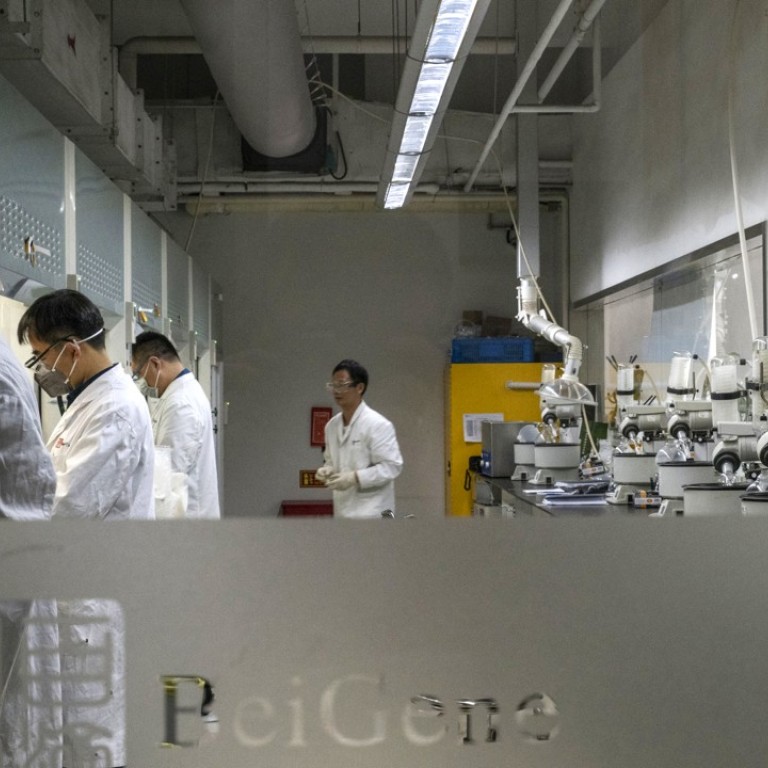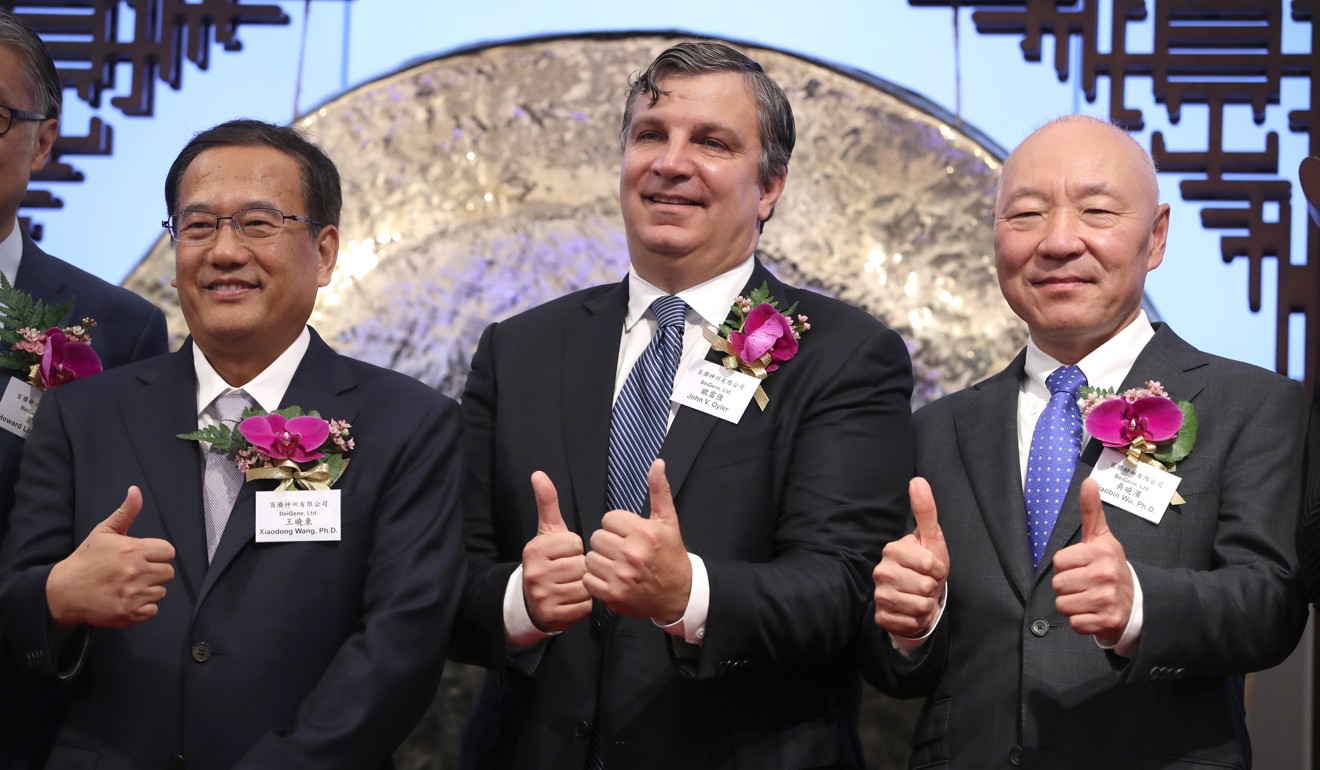
Chinese cancer drug maker BeiGene drops 5 per cent on Hong Kong debut
BeiGene, the first overseas-listed biotechnology firm to seek a secondary flotation in Hong Kong under revised listing rules, closed its trading debut down one per cent in the city.
Shares of the Beijing-based cancer drug maker, which is already listed on the Nasdaq, fell to as low as HK$103 from the offer price of HK$108 early on Wednesday morning. They later bounced back to close at HK$107 for the day.
The underwhelming debut performance came despite eight cornerstone investors – including the Singaporean sovereign fund GIC – buying a combined 31 per cent of the international shares offered.
BeiGene is the second biotech firm to float its stock in Hong Kong under new rules that came into effect in April. Both have got off to a bad start on the market.
“Biotechnology companies are new to investors in Hong Kong. They have not yet made any profit while some may not even have any revenue,” said Gordon Tsui Luen-on, managing director of Hong Kong-based brokerage Hantec Pacific.
“The poor performance of the first two biotechnology firms will have a negative impact on the other six biotech companies which have filed for listing in Hong Kong.

It managed, however, to attract some strong cornerstone investors, who took up half of the international offering, which was “moderately oversubscribed”. This helped the company to price its shares in the middle of its indicative range to fulfil its HK$6.83 billion fundraising plan.
Chief financial officer Howard Liang said after Wednesday morning’s listing ceremony the company was “satisfied” with the listing exercise in Hong Kong.
“Through the Hong Kong listing, we have met our main objectives of increasing our visibility and expanding our shareholder base in Asia, especially long-term investors,” he said.
Support from long-term investors is key to biotech companies because they typically need to raise funds more than 10 times to complete their drug development programmes before they can commercialise some of the products and make a profit, he added.
The Hong Kong bourse in April carried out the biggest overhaul of its listing rules in 25 years in a bid to attract giant technology firms with dual-class shareholding structures – shares that carry different voting rights – and biotechnology firms that are yet to generate revenue to list. So far, two biotech firms have listed and six more have submitted applications.
Ascletis Pharma, the first early-stage pre-profit biotechnology company to list in Hong Kong under the new regime, debuted a week ago, and saw its shares slide 32 per cent in the first three days to close at HK$10.02 on Friday. They closed down 5.1 per cent at HK$11.14 on Wednesday, but were still down 20 per cent from their IPO price.


